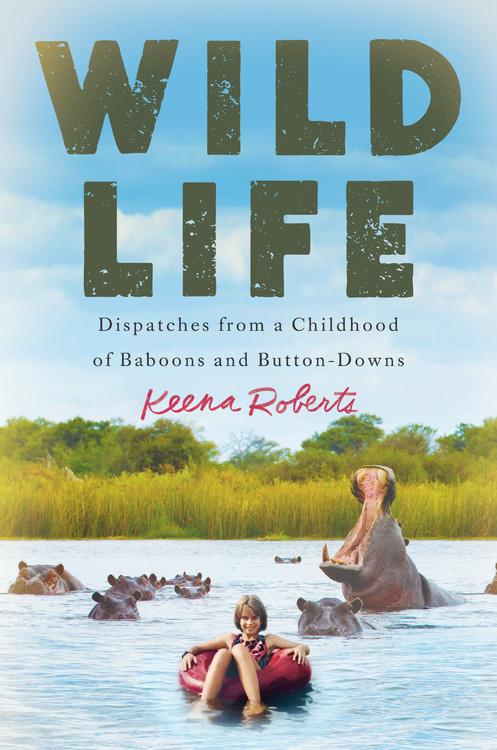In an era when most American parents are afraid to let their children walk to a neighbor's house alone, Keena Roberts' mother and father took a different approach.
Roberts' parents raised her largely in Botswana's vast Okavango Delta, where they were doing research on baboons. The family lived in a camp hours away from the nearest town, leaving Keena, even at a young age, to go off alone and explore an expanse dotted with hippopotamuses, elephants, water buffalo, lions and jaguars.
This is the focus of Roberts' excellent 2019 autobiography, smartly titled "Wild Life."
"Wild Life" brings together many of the best ingredients of a great book. Ordinary people in unusual situations. Exotic locales. Danger. Humans you can relate to. And, above all, clear, evocative writing that places you in the scene.
Was living in the African wild really dangerous? Yes, it was, Roberts notes (and there is a jaguar attack in the book to emphasize the point), but she learned to reduce the risk by being keenly aware of her surroundings. She describes how smells, sounds, animal tracks, ripples in the water, and even specific calls of baboons and birds were all clues to the presence of dangerous animals.
The book is not all about Roberts' life in Africa. She also describes her "alternate life" near Philadelphia, where she attended school off and on when her family wasn't in Africa.
Life in America was in many ways more difficult than it was in Botswana. You feel for her as she struggles to adapt to American teenager culture, her African life leaving her socially clumsy, and stumbles through the dynamics of "mean girl" encounters.
Roberts is an excellent writer that places you there. When she talks of the oppressive heat of Botswana's dry season, you feel it. When she is charged by a lion and prepares to die, your heartbeat rises too. When a snooty high school girl mocks her hairstyle, you can't help but get angry.
For example, she describes her routine upon awakening at Baboon Camp:
I lay completely still for a minute or two, sniffing the air to see if I smelled elephants or buffalo among the scents of dry dust and sage bushes outside the tent. Smelling only the earth and hearing only the birds scratching on the ground, I sat up slowly. ... I slid out from under the heavy blankets piled on my cot and pulled on shorts, a T-shirt, and my purple Patagonia jacket. I was supposed to wear shoes so I didn't rack dirt into the tent, but I rarely followed this rule — I liked to feel the ground under my feet, the way the dust pooled between my toes and puffed up around my ankles.
My favorite scene from the book is where 10-year-old Keena is called upon, because of an urgent situation, to pilot one of the family's boats on a two-hour drive through the crocodile and hippo-infested swamps, her younger sister the only passenger. Though she was a capable boat driver even at that age, she had never done this kind of trip,. She is honest about her fears and I turned the pages rapidly to find out how the trip would turn out.
My least favorite part of the book is where she is accepted into Harvard. I feel bad saying that, because this was obviously a big achievement for Roberts. But up until then, she had been largely an underdog — a child trying to fit in awkwardly in two worlds, troubled by so many of the anxieties we all face at that age — and it was easy to root for her.
Her acceptance into Harvard abruptly elevated her to another level — an American success story. It didn't seem to fit, and for a little while it bothered me.
But you know what? Roberts is so likeable that I soon got over it.

No comments:
Post a Comment